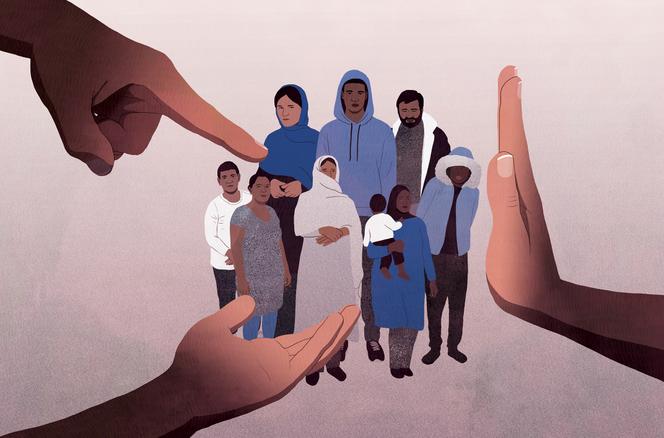


Immigration was a key issue for voters of the far-right Rassemblement National (RN) party in the European elections on June 9, if several polls are to be believed. Ahead of the June 30 and July 7 parliamentary elections, the issue is at the heart of the far right's promises, contrasting sharply with the positions of the left-wing Nouveau Front Populaire (NFP) alliance. President Emmanuel Macron's coalition, meanwhile, is defending record on the subject.
On Tuesday, June 18, Macron described the NFP's proposals as "totally immigrationist," using a term popular on the far right to discredit his opponents on the left. The NFP has listed 12 proposals to "guarantee a dignified arrival" for migrants. "It's a program built on reality and not on a migratory fantasy, because the crisis is one of reception and not of immigration," stressed Benoît Hamon, a former Socialist presidential candidate who now heads SINGA, an NGO defending refugees.
The left's main goal is to repeal the immigration laws passed during Macron's presidency. The first, passed in 2018 and known as the "Collomb Law," lengthened the maximum duration of pre-deportation detention from 45 days to 90 days, and enabled the issuing of documents obliging certain asylum seekers to leave French territory after the first rejection of their case. As for the 2024 law carried by Interior Minister Gérald Darmanin, it broadened the possibilities for expulsing certain categories of foreigners with a criminal record. Other measures, such as the reform of the National Court of Asylum and the simplification of status regularization of undocumented workers in short-staffed professions, have yet to be truly implemented.
The left has put forward several proposals aimed at improving existing public policies, which would require budgetary efforts and political will. These include "social support," or "work authorization for asylum seekers," which is already possible but rarely implemented by prefectures. The NFP also wants to "facilitate" the acquisition of French nationality and the issuing of visas, "guarantee access" to the only healthcare coverage available to undocumented people and "regularize the status of workers, students and parents of schoolchildren." This has been possible since 2012, but it is applied inconsistently by prefects across the country.
The NFP's policy platform includes several proposals that are unlikely to pass, such as the creation of a "land and sea rescue agency, pending its creation at the European level," or a "status for climate-displaced persons." France could do this alone, "but it would be more coherent at an international level," said Tania Racho, a researcher in European law at Paris-Saclay University and member of the Désinfox Migrations organization. Similarly, the NFP wants to "revise the European pact on Migration and Asylum," which has just been adopted by the European Union. "It's hard to see how national MPs could revise this text," stressed Racho. "It's up to the European Commission to decide."
You have 54.34% of this article left to read. The rest is for subscribers only.
